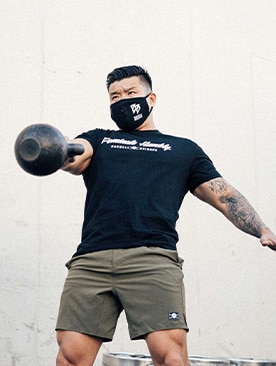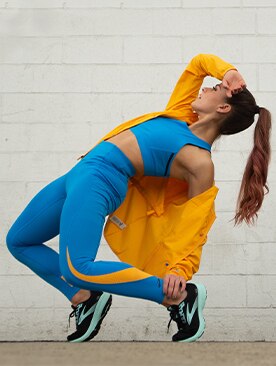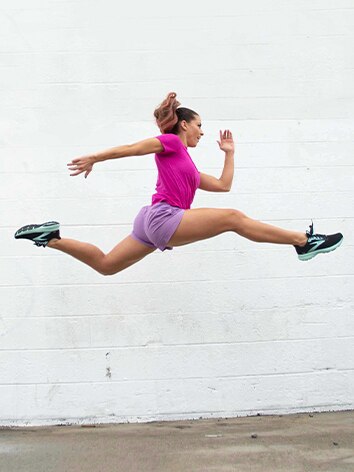How running as part of cross-training helps athletes

DISCLAIMER: THIS ARTICLE DOES NOT PROVIDE MEDICAL ADVICE
The content in this post is intended for informational or general educational purposes only and it is not intended to be a substitute for professional medical advice, diagnosis or treatment. Always seek the advice of your physician or other qualified health care provider with any questions you may have regarding a medical condition or treatment and before making any adjustments to your running, nutrition, fitness, or healthcare routines.
A re you sculpting your way to the perfect weightlifting body? Are you trying to improve your endurance as a professional dancer? Here’s why running could be the perfect supplemental workout to help you achieve your goals.
Since at least the time of the Ancient Greeks, we’ve been incorporating variety into our exercise regime. According to the Journal of Nutrition, Lucius Philostratus, the Greek sophist, was known to incorporate wrestling with animals into his own form of cross-training. While we’ve come a long way in terms of exercise equipment (please don’t go looking for a bear to wrestle), the desire for variety persists. So, for everyone looking to switch things up, we’re going to talk about the benefits of adding running to your cross-training.
Run it back to the benefits
Adding a run to your cross-training regimen can bring a wealth of good — both physical and mental. Let’s look at some of running’s general benefits.
- It makes your fitness plan less boring. When you’re not bored, you’re motivated to do more. Variety decreases monotony and for a lot of people, variety also yields fun.
- Mixing anaerobic and aerobic exercises helps improve your cardiovascular health.
- Training adjacent muscle groups can help prevent injury while also avoiding overtraining one specific part of your body.
- A weekly run can provide mental stress relief and help you fall asleep more easily.
Take an athlete's word (and social post) for it
Whatever your sport, running can help keep you strong and get your body moving. We recently started a new initiative named “Make A Run At It.” It’s a partnership between Brooks and some phenomenal athletes to share how running became part of their training regimen for their specific sports. Check out some of their stories below.
Running for weightlifters
Weightlifting is great for building muscle and improving your physique. Add running to it and you could increase muscle efficiency while improving cardiovascular circulation. Heart health is super important for weightlifters as it means you’ll improve the way your muscles get oxygen which can result in better lifting performance.


Learn how @bartkwan incorporates running into their weightlifting training.
Running for dancers
Dancers are masters of vigorous, high-impact choreography. The continuous physical intensity of say, ballet, often pushes the absolute limit of a dancer’s endurance. It’s no surprise that, according to a 2013 study by POINTE, 90% of dance injuries are fatigue related. Adding regular runs to your exercise regimen can greatly increase your stamina by training your lungs and heart to work more efficiently. It also keeps your back, knees, and more in tip-top shape. In fact, a study by Stanford University's School of Medicine tracked the health of fifty people for 20 years and found those who ran regularly end up with healthier knees well into their seventies. This makes running not only an excellent supplemental workout to help sidestep dance-related injuries, but as a platform for good health in the long term.


Learn how @kausha_campbell incorporates running into their dance training.
Running for jump ropers
Jump rope supports better posture, builds muscle, is low-impact, and can be easy on the joints. But that doesn’t mean injuries and muscle strain are impossible. Incorporating runs into a jump rope workout also supports improved breathing techniques and endurance for longer sessions.

Learn how @snorib incorporates running into their jump rope training.
For more stories, make sure to search for #MakeARunAtIt on TikTok and Instagram. It’s a new partnership between Brooks and some phenomenal athletes to spread the word about running as a great cross training tool.
All for run
In conclusion, running regularly at various levels greatly improves the health of your whole body. From enhancing lung and heart health to strengthening your joints, whatever your sport, adding a few miles to your exercise routine can help take your fitness to the next level.
Now you’re going to need shoes
Inspired to get a run in? Check out our handy Shoe Finder. You can answer some quick questions and it’ll suggest some of our finest footwear to keep your run happy and healthy.